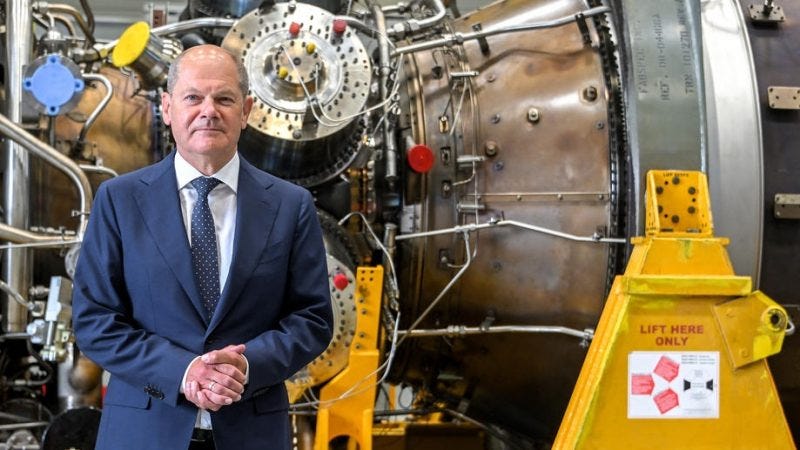In the news: Energy, wildfires, Taiwan.
This week in Europe, the continent battles wildfire amidst an energy crisis. From a dependency to the next, Germany realises its dependency on China.

Energy crisis: inflation, climate change, dependency
As the Ukraine conflict deepens, so does the issue of the Europe’s energy supplies. Germany - one of the leading advocates for Russian gas before the war - now considers that, after all, nuclear energy perhaps “might make sense”1.
Olaf Scholz is now considering leaving in operation, and for a limited time, the last three remaining power plants of the country. A move that contredict Angela Merkel’s decision to ditch nuclear energy after the Fukushima disaster ten years ago, which prompted a increase in natural gas and coal consumption. Knowing how it played out for russian gas import, we cannot say that Germans were good strategists here.
The energy crisis fuels other hot topics, most of them the inflation and climate change. The European Parliament research service remind us in a short clip that energy prices account for half of the inflation we experience today. You can see it here.
Europe battles against wildfire. Considering the impact of the energy sources over total CO2 emissions - the main reason for global warming - it’s easy to link the two. Crisis Management Commissioner Janez Lenarčič wants to increase the Union’s power to respond to natural disasters, as Europe lost 600,731 hectares of forest to fires this summer.
“When and if there is a decision to go for treaty change, I’m sure this should be part of the discussions — how to strengthen the disaster response capacity, including the decision-making capacity on the European level, which we now don’t have,” Lenarčič said (POLITICO).
Taiwan, China, and the EU
From one crisis to the next. Speaker of the United States House of Representatives Naci Pelosi’s visit to Taiwan prompted diverse reactions in Europe. Lithuania is the only European country to endorse Pelosi’s visit. On the other hand, Germany started to realise the extend of its economic dependency… to China.
Michael Roth, Merkel’s former Europe minister tweeted:

These tensions are also a wake-up call for 🇩🇪 + 🇪🇺. We live in uncertain, unpredictable times. Our economic dependence on 🇨🇳 is immense, especially in times of crisis this can hit us hard like a boomerang.
Other news
Our favorite wanna-be dictator Vikto Orbàn flew to the United States this week. He attended (and spoke to) the Conservative Political Action Conference in Texas on Thursday. His main message: “we should unite our forces.” He also met with former President Donald Trump for a golf party, POLITICO reports.
Can the energy crisis have positive impacts on diplomacy? It seems that the Iran nuclear deal might not be a lost cause afterall. The EU pushed for a revival of the negociations, POLITICO reported this week2.
The objective for the negociations is to drop Western sanctions on Iran, notably on energy.
That’s it for this week. I hope you enjoyed reading The Beubble. If you did, you can share it to a friend. See you next week!
See Friday 5 August POLITICO’s Brussels Playbook
See Thursday 4 August POLITICO’s Brussels Playbook




